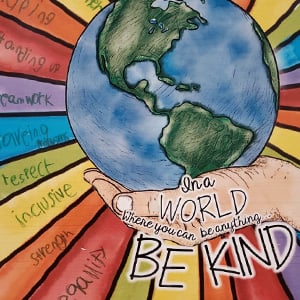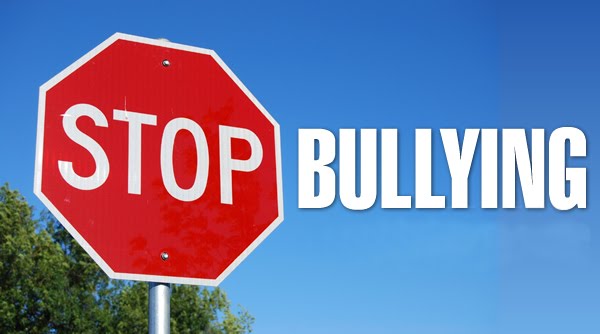March 23, 2022 | Beau Yarbrough, Los Angeles Daily News
Most students report having been cyber bullied, but some schools have been able to reduce incidents by hiring additional counselors and creating online portals to report bullying and putting links to them everywhere.
(TNS) — Today’s kids face bullying and other dangers in two worlds, one online and the other offline.
“Parenting is parenting and digital spaces are just another place that kids hang out,” said Stephanie M. Reich, professor of education at UC Irvine.
A new Southern California News Group analysis shows that 33.5 percent of California secondary students reported being bullied or harassed in the past 12 months in an anonymous survey distributed in three-quarters of California school districts.
But the same kind of practical advice parents give their children before heading to school or a friend’s house can also protect them from cyber bullying online.
“When your kid is little and they want to go to the park, you don’t just open the door and say ‘There you go,’” Reich said.
According to a survey conducted between May and June 2021 by the Cyberbullying Research Center, 23.2 percent of children in America had been cyber bullied, with the highest numbers experienced by 15 year olds, 27.7 percent of whom had said they’d been bullied.
Cyber bullying can take many forms, from messages or social media posts intended to upset the target, online gossip, recording and posting offline bullying online, or impersonating bullying victims or creating doctored images to defame them.
In a 2018 Pew Research Center survey, 59 percent of teens surveyed said they’d experienced cyber bullying at some point.
“People always think about it as this dark shadowy thing that nobody is aware of that’s somehow different than what bullying is like,” Reich said. “But cyber bullying is a lot like in-person bullying.”
The consequences of cyber bullying, however, can be more severe than offline bullying, according to the National Institutes of Health. Cyber bullying victims are more likely to suffer from depression than those who are bullied in other ways, for example.
There are school districts in California that have much lower reported rates of bullying — some as low as one-third the statewide average. The rates are typically a result of improving school mental health climates, hiring additional counselors and implementing more robust anti-bullying policies and procedures.
More and more, school districts are taking what happens online as seriously as what happens on campus, according to Loretta Whitson, executive director of California Association of School Counselors.
“I can tell you that, many times, kids were pretty upset about being suspended when they (bullied) online, when they were at home,” she said. “But it disrupted education, and that was the rule.”
Districts with low rates of reported bullying often create online portals to report bullying and put links to them everywhere, including on students’ Chromebooks or other district-issued devices, by posting QR codes around campus and placing links on district and school websites. They also sometimes monitor how students use district devices and Internet use, flagging signs of bullying.
Jurupa Unified in Riverside County has both widespread links to the district’s bullying reporting line and uses software to flag when students visit inappropriate websites, including those dealing with drug use or self-harm.
The reporting tools have been getting a workout in the past two years.
“Since the pandemic, even during the virtual year, the actionable reports that have been put in have greatly increased,” said Monty Owens, the district’s director of educational equity.
The biggest way the districts combat cyber bullying, though, is the same way they combat it offline: By changing the school and district culture.
“One of the key characteristics of schoolyard bullying is that there’s a bunch of bystanders standing by, watching, not doing anything,” Reich said. “It’s the same in digital spaces. We want to train kids to intervene.”
That training is taking place in school districts with lower bullying rates. But Reich says there’s more work to do off school grounds to combat bullying.
“It’s really about a community that doesn’t tolerate it on the playground and they don’t tolerate it in digital spaces,” she said.
To get ahead of the issue, Reich said children should learn empathy to help prevent cyber bullying.
“If you’re empathetic, you’re not going to hurt others online and you’re less likely to tolerate it happening to other people online,” she said.
And that includes empathy for the bullies, too.
“Cyber bullies are often cyber-victims themselves,” she said.
Plus, she said, “they often have households that are not great. They have very neglectful parents or very laissez faire ones. They’re usually bullies because they’re trying to assert control.”
Reich believes parents should teach their children to be aware of the possible dangers online and how to avoid them, as well as develop trust with children so they are willing to share about things that concern or upset them.
“If you cultivate a high quality relationship with your child, you can have those conversations with them, whether it’s about digital spaces or offline,” Reich said.
With her own children, she gave her kids access to digital devices and the Internet gradually, based on their developmental stage. And just like talking about the hazards one could encounter on the way to the park, she spoke to her children about how algorithms for various social platforms shove engaging content at users without any concern about whether it’s healthy or accurate.
“We’re just trying to cultivate our kids being conscious and aware when they’re using devices,” she said.
And for parents looking for specific practical advice, the Boy Scouts — who have an online safety training course for scouts as young as first grade — have some tips:
Common types of cyber bullying
- Flaming, trolling or trash talking by sending or posting hostile messages intended to upset others
- Recording someone being harassed or bullied, then posting the video online for public viewing
- Identify theft or impersonation
- Doctored images
- Physical threats
- Spreading rumors or public shaming
Signs a child may be a victim of cyber bullying
- Avoids computer, cell phone and other devices
- Appears stressed when receiving an email, instant message or text message
- Withdraws from family and friends
- Reluctant to attend school or social events
- Avoids conversations about their computer use
- Exhibits signs of low self-esteem, including depression or fear
- Has declining grades
- Has poor eating or sleeping habits
- Acts secretive when online
What to do if your child is being cyber bullied
- Encourage your child not to respond to the bully
- Do not erase the messages or pictures, and take screenshots and save them as evidence
- Try to identify the individual doing the cyber bullying, even if the cyber bully is anonymous
- If the cyber/gaming bullying is criminal — such as threats of violence, extortion, obscene or harassing phone calls or text messages, stalking, hate crimes or child pornography — contact the police
This story is part of a 2021 Data Fellowship with the USC Annenberg Center for Health Journalism.
If you would like to learn more about random acts of kindness, contact Simple Acts of Care and Kindness at 866-459-7225 or visit www.simpleacts.org for additional information.







